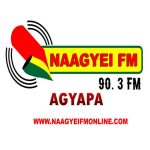
Mr Samuel Qyansah, the second Prosecution Witness in the trial of former MASLOC CEO Sedina Tamakloe Attionu, has told the Financial and Tax Court that he together with the Board Chairman of Obaatanpa Microfinance Company Limited, Seth Aseidu Obugyei, delivered GHc 500,000.00 to her in a “Ghana must go” bag at the Baatsona Total Filling Station.
In his Witness Statement relied upon by the State to establish his evidence in chief in Court today the 25th of November 2019, Samuel Qyansah, an accountant and board member of Obaatanpa Microfinance Company Limited, stated as follows, “I am aware that the Chief Executive Officer of Masloc Madam Sedina Tamakloe in a private conversation with the board chair of Oboaatanpa, Seth Asiedu Obugyei, offered to invest an amount of five hundred thousand cedis (Ghc 500,000) in Obaatanpa in 2014. Shortly after the amount had been invested, the management of Obaatanpa complained about the high-interest rate expected to be paid. MASLOC was informed by the board chairman about the complaint of Obaatanpa and we were informed by the board chair that MASLOC had requested us to return the money”.
He further noted that based on the decision of the board to discontinue the investment “I accompanied the board chair to return the money to Madam Sedina in cash in a “Ghana must go” bag at the Baatsona Total Filling station”the witness statement said.
Emphasizing why Obaatanpa had to send the money in cash, the Prosecution Witness stated that “she [Sedina Tamakloe] refused to accept a cheque because she said some cheques are difficult to clear”.
He added that he “went to the office of Madam Sedina some days later to pick up the letter acknowledging receipt of the amount dated 28th August, 2014”.
During cross-examination of the Prosecution Witness, the lawyer for the former Masloc CEO, Agbesi Dzakpasu, inquired from the witness, “Are you telling the Court that you had counted this money yourself or you were present when it was counted”?
The witness, Samuel Qyansah, answered saying, “My lord, I was present when it was counted”.
Lawyer Dzakpasu, further asked, “In what denomination sir”?
Mr. Qyansah answered, “My Lord, the 10.00 Cedis notes were GHc 100,000.00, the 50.00 Cedis notes were GHc 200,000.00 and 20 Cedis notes were GHc 200,000.00, making a total of GHc 500,000.00”.
Presiding Judge Justice Afia Serwaa Asare Botwe’s Court adjourned sitting to the 26th of November 2019 for lawyers of the accused persons to continue with the cross-examination of the 2nd Prosecution Witness.
Background and Facts of the Case
According to the brief facts as contained in the Charge Sheet filed at the Registry of the Criminal Division of the High Court in Accra, in 2017, the Economic and Organised Crime Office (EOCO) conducted investigations into certain fraudulent disbursement of MASLOC funds involving the 1st and 2nd accused persons.
The investigations, the state says, revealed that in June 2014, MASLOC invested a sum of GH¢150,000 in Obaatanpa Micro-Finance Company Limited (Obaatanpa), a licensed Tier II microfinance company located at Ejura in the Ashanti Region.
Thereafter, the 1st accused person offered Obaatanpa a further investment sum of GH¢500,000. As a result, a MASLOC Agricultural Development Bank (ADB) cheque dated 24th July, 2014, in the sum of GH¢500,000 was drawn in favour of Obaatanpa.
Soon after Obaatanpa received the MASLOC cheque, the 1st accused person informed the Board Chairman of Obaatanpa that the investment amount of GH¢500,000 would attract 24% interest. Obaatanpa decided to return the amount to MASLOC since the interest rate being demanded by the accused person was too high and unprofitable for its business and issued a cheque in refund of the loan amount.
The facts further state that upon presentation of the cheque, the 1st accused person declined to accept the cheque and made a demand for a cash refund. A cash amount of GH¢500,000 was delivered to the 1st accused person by the Board Chairman of Obaatanpa on the night of 28th August, 2014, at the Baatsona Total Filling Station located on the Spintex Road in Accra. By a letter dated 28th August, 2014, the 1st accused person acknowledged receipt of the refund sum.
In 2015, per letters, some of which were under the hand of the accused person, MASLOC made demands on Obaatanpa for the payment of interest on the principal investment sum of GH¢500,000.
In response to the demands, Obaatanpa wrote a reminder to MASLOC concerning the payment of the loan amount and drew the 1st accused person’s attention to the unjustified demands whereupon the demands stopped.
In 2017, upon the assumption of office of a new Chief Executive of MASLOC, a demand notice was again sent to Obaatanpa for the payment of accrued interest on the same investment sum of GH¢500,000 whereupon Obaatanpa once again informed MASLOC that the said money had already been refunded since 2014.
Investigations subsequently showed that MASLOC had no record of the amount having been paid to it and that the 1st accused person had appropriated the amount of GH¢500,000.
Investigations further revealed that in April 2016, the 1st accused person obtained approval of the MASLOC Board to utilize the sum of GH¢1,706,000 of MASLOC funds for a countrywide sensitization and monitoring programme for 85,300 beneficiaries of MASLOC loans.
Each of the targeted 85,300 beneficiaries was to receive Twenty Ghana Cedis (GH¢20) to cover transportation and refreshment. Between April and December 2016, upon the authority of the 1st accused person a total sum of GH¢1,816,000 withdrawn in tranches, was received by the 1st and 2nd accused persons even though approval had been given by the MASLOC Board for a sum of GH¢1,706,000.
Again investigations revealed that out of the sum of GH¢1,816,000 only GH¢1,300 was spent on refreshment for some beneficiaries in the Volta, Greater-Accra and Brong-Ahafo Regions only and that no programme whatsoever took place in the other seven regions.
The State in her brief facts further noted that investigations further revealed that prior to the Board’s approval, the first accused person also appropriated GHC 246,280 meant for training, sensitization and financial literacy.
The investigations, the State says, disclosed that in 2013, following a fire disaster at the Kantamanto Market, the then President John Mahama directed MASLOC to provide an assistance of GH¢1,465,035 to victims of the fire disaster.
The money was, however, to be disbursed through Dwadifo Adamfo Savings and Loans Company Limited (Dwadifo Adamfo). The State inquiries, it says, showed that the 1st accused person appropriated GH¢579,800 out of the sum of GH¢1,465,035.
In August 2016, the 1st accused person on behalf of MASLOC wrote to the Public Procurement Authority (PPA) for approval to procure vehicles from Mac Autos and Spare Parts Ltd (Mac Autos) for the GPRTU using the single source method under the Public Procurement Act. In October 2016, the PPA wrote back to MASLOC requesting MASLOC to furnish it with financial arrangement approved by the Ministry of Finance.
On 5th December 2016, the then Minister of Finance wrote to the PPA to confirm financial arrangements which were being put in place for the purchase of vehicles. Without any approval from PPA, the 1st accused person signed a contract with Mac Autos on 6th December 2016, to supply MASLOC with 350 vehicles comprising of 150 Chevy Aveo Saloon, 100 Chevy Sparklite and 33-seater Isuzu buses. MASLOC applied for a tax waiver on all the vehicles.
The unit price offered by Mac Autos to MASLOC for the Chevy Aveo was GH¢74,495 ($18,883.39). However investigations revealed that the actual retail price Mac offered for the same model within the same year without duty was GH¢47,346.93 ($12,009.91).
The unit price offered for the Chevy Sparklite was GHC 65,095.00 ($16,500.63) when the actual price offered by Mac Autos within that same period without duty was GH¢35,918.37 ($9,104.77).
For the Isuzu 33-seater buses, the unit price offered to MASLOC was GH¢445,560 ($112,942.96) but the actual retail price without duty was GH¢293,877.55 ($74,493.67).
Again, in November 2016, MASLOC procured 200 pieces of Samsung B310 mobile dual sim phones under a project called PINCO Project Market Survey.
Investigations revealed that although the actual open market price of the phones was GH¢24,400, the 1st accused person purchased them at the inflated price of GH¢93,412.
Additional checks also revealed that, in January 2017, the 1st accused person, without the requisite approval and authorization, caused to be paid to herself and her deputy, one Mustapha Abubakar Batalima, the sums of GH¢135,592.33 and GH¢82,218.76 respectively as ex gratia.
Furthermore, in the same month, the 1st accused person caused to be paid to herself and her deputy cash payments in the sums of GH¢28,445.94 and GH¢27,486.62 respectively, purportedly in lieu of leave, in contravention of the law.
The Charges
Count one (1) to thirty-five (35) are on charges of Stealing and Conspiracy to Commit Crime namely Stealing contrary to section 23(1) and 124(1) of the Criminal Offences Act 1960 (Act 29). Count thirty-six (36) to sixty-eight (68), are on Causing Financial Loss to the State, Wilfully Causing Financial to the State and Conspiracy to Commit Crime namely Wilfully Causing Financial to the State all of which are contrary to section 23(1) and 179A (3)(a) of the Criminal Offences Act 1960 (Act 29). Counts seventy (70) and seventy-one (71) bother on Causing Loss to Public Property, contrary to section 2 of the Public Property Protection Act 1977 (SMCD 140).
Furthermore, counts seventy-two (72) and seventy-three (73) has the statement of offense captured as Improper Payment of Public Funds contrary to section 96(1)(c) of the Public Financial Management Act, 2016 (Act 921). Count seventy-four charges the first accused person, Sedina Christine Tamakloe Attionu, with Unauthorised Commitment, Resulting in Financial Obligation for the Government contrary to section 96(1)(a) of the Public Financial Management Act, 2016 (Act 921). Count seventy-five (75) to seventy-eight (78) prefer charges of Money Laundering contrary to section 1(1)(c) of Anti-Money Laundering Act, 2008 (Act 749) and finally count seventy-nine (79) and eighty (80) bother on the charge of Contravention of the Public Procurement Act contrary to section 92(1), and 40(1)(a) of the Public Procurement Act, 2003 (Act 663).
 Naagyei 90.3 Fm Agyapa
Naagyei 90.3 Fm Agyapa





